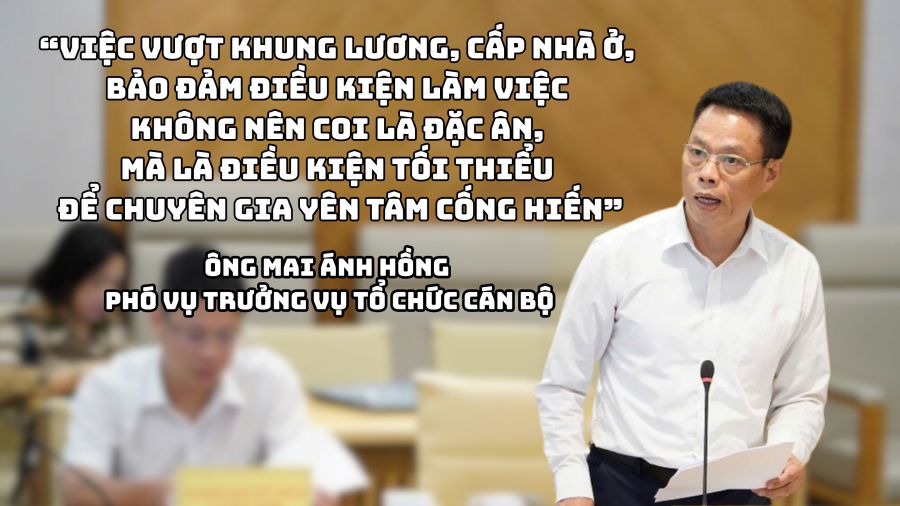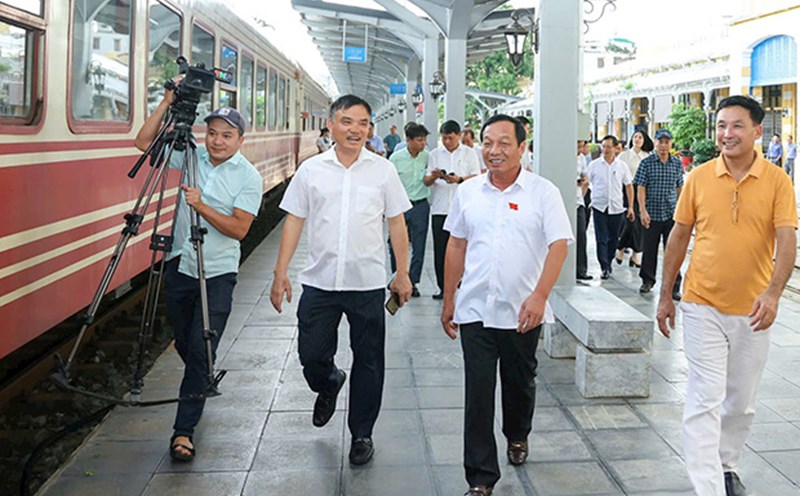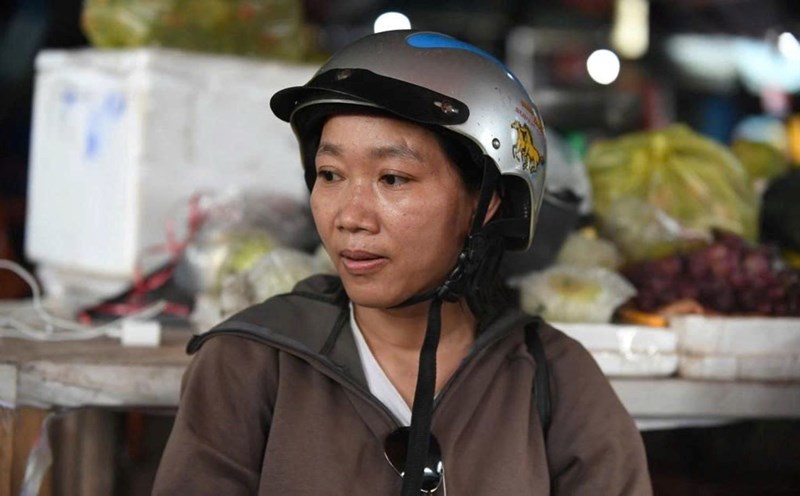Breakthrough mechanism to attract and retain scientific and technological talents
In the context of Vietnam aiming to become a high-income developed country by 2045, science and technology, innovation, and digital transformation are identified as the central driving force. However, the decisive factor lies in high-quality human resources, especially the talent of science and technology. Without a strong enough mechanism, attracting and retaining this team will forever be a policy.
Mr. Mai Anh Hong - Deputy Director of the Department of Organization and Personnel, Ministry of Science and Technology commented: "High-quality human resources are the key and cannot apply rigid policies". The National Assembly's approval of the Law on Science, Technology and Innovation 2025 and the Law on Digital Technology Industry has opened up an open legal corridor, allowing the implementation of flexible compensation mechanisms, including exceeding the salary framework, to attract and promote talent.
According to Mr. Hong, exceeding the salary framework, housing allocation, and ensuring working conditions should not be considered a privilege, but a minimum condition for experts to feel secure in their contributions. The new law also recognizes intellectual property rights, financial rights and the right to commercialize research results. At the same time, the new policy aims to strongly encourage the return of Vietnamese intellectuals working abroad, considering this a "golden resource" because they bring advanced knowledge, international experience and a global network of connections.
To concretize the spirit of the Law on Science, Technology and Innovation, the Ministry of Science and Technology plans to implement a series of policies. In which, there is the development of a project and the promotion of talent and high-quality human resources to serve the development of science, technology, innovation and national digital transformation. Develop national programs to attract Vietnamese scientists abroad as well as international experts; invest in upgrading key laboratories, building high-tech parks and technology nursery areas; encourage businesses to cooperate with institutes and schools to promote research and development.
In addition, the Ministry of Science and Technology aims to promote international cooperation, attract large corporations to set the center of research and development in Vietnam; reduce administrative barriers, give scientists maximum autonomy, evaluate based on efficiency and products instead of focusing only on processes. International publications, patents, and commercialized products will be a measure of research capacity and value.
Innovation in management thinking, aspiration to reach the level of scientific power
According to Central Party Committee member, Minister of Science and Technology Nguyen Manh Hung, "Vietnam's dream is big enough, it is difficult enough, and there are finances, so we can attract global knowledge to solve the country's major problems together".
The Law on Science, Technology and Innovation shows a fundamental change when for the first time, innovation is brought on par with science and technology. According to the orientation, science and technology along with innovation are expected to contribute about 4% to the growth of the gross domestic product, of which science and technology account for about 1%, innovation accounts for about 3%. This reflects the shift from the thinking of "s science goes first, application follows later" to taking practical needs, markets and products as motivation.
A series of innovations in management are proposed: From controlling input and processes to effectively managing output; increasing autonomy for research organizations and individuals; at the same time, requiring accountability and transparency in resource use. The State prioritizes resources for strategic technology mastery tasks, thereby promoting businesses to become the center of research and development activities.
Vietnam also focuses on balancing natural science and social science, building a complete scientific and technological - innovation ecosystem including: State, enterprises, research institutes, universities, financial institutions, research funds and intermediary organizations. In that ecosystem, the State plays a role in creating, through investment in modern technical infrastructure, preferential financial mechanisms, and policies to reward domestic and foreign talents.
Along with that is comprehensive digital transformation of science and technology activities, from task management, research to application and commercialization. Digitization helps reduce administrative procedures, improve transparency, and at the same time create the ability to long-term monitor scientific and technological tasks.
Great aspirations, breakthrough mechanisms and innovation in management thinking are 3 key factors for Vietnam to promote the strength of domestic and foreign talents.













